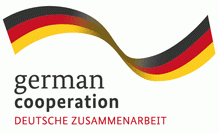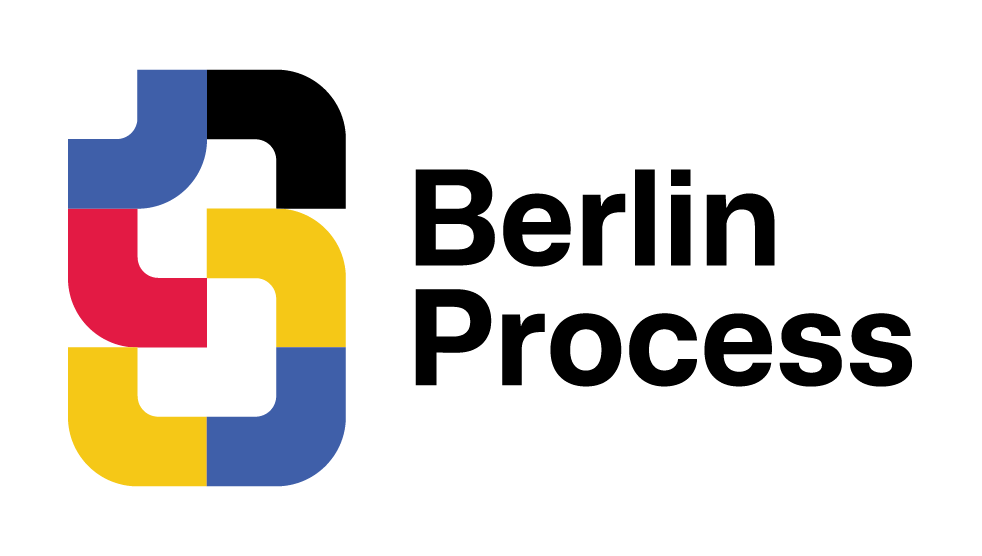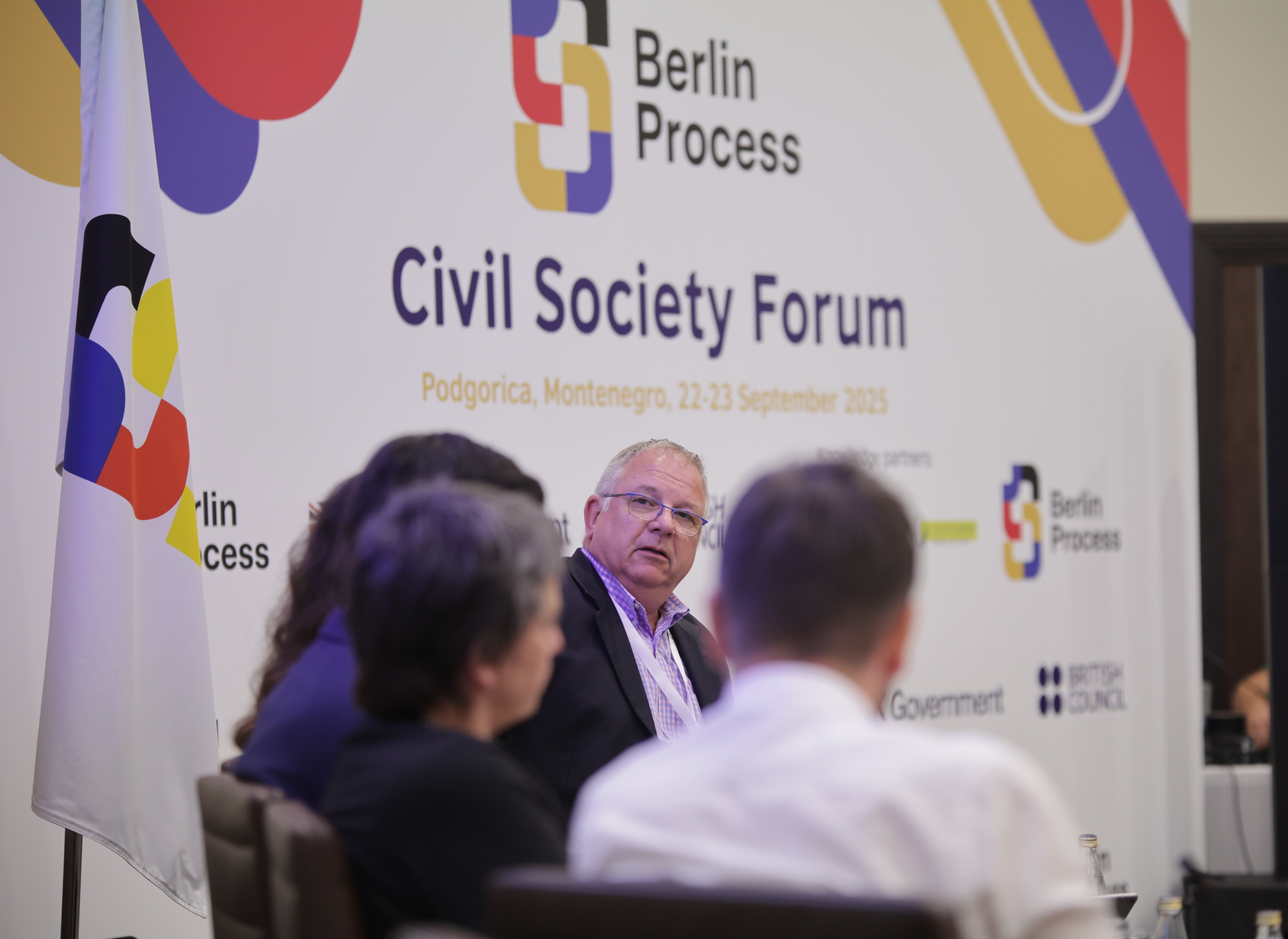The Civil Society and Think Tank Forum (CSF) 2025 took place in Podgorica, Montenegro, on 22–23 September 2025. The Forum, convened by the British Council and financed by the UK Government, brought together over 150 participants from across the Western Balkans and Europe.
The Forum provided a structured platform for dialogue between civil society, academia, government, international organisations, and other stakeholders. Its purpose was to ensure that the perspectives of civil society and independent actors fed into the Berlin Process Ministerial Meetings and Leaders’ Summit. In this way, the Forum reaffirmed civil society’s role as a driver of democratic accountability, regional cooperation, and inclusive policymaking.
In summer 2025, extensive consultations were consolidated into thematic policy recommendations, which were then presented and debated during the two-day event in Podgorica. The Forum thus reflected not only the discussions that took place at the conference but also the wider civic voice of the region.
Discussions were organised around six main thematic areas: Good Governance; Security; Reconciliation and Dealing with the Past; Gender and Diversity; Common Regional Market and Growth; and Environment, Energy, and Decarbonisation. Each session combined the presentation of recommendations with panel exchanges and open debate. Thematic panels were complemented by four Spotlight themes: Media, Migration, Youth, and the Operating Environment for Civil Society, which addressed important cross-cutting issues.
The Civil Society and Think Tank Forum 2025 highlighted both the depth of challenges facing the Western Balkans and the resilience of civic actors who continue to advocate for democratic, inclusive, and sustainable reforms. Across all sessions, participants stressed that civil society is not a peripheral actor but an indispensable partner in shaping the region’s European future.
The Forum conveyed a sense of urgency and concern about the slow pace of reforms, the persistence of authoritarian tendencies, and the erosion of public trust. At the same time, they highlighted creativity, solidarity, and determination among civic actors. The overarching reflection is clear: the Western Balkans’ European future depends on embedding accountability, inclusivity, and sustainability into every reform – a task that requires cooperation between governments, institutions, and civil society.
You can read the CSF 2025 policy recommendations here


